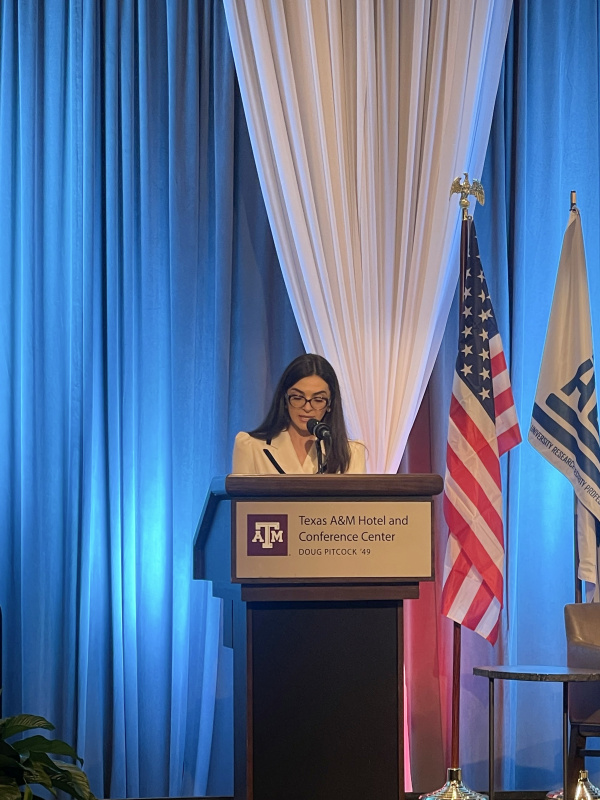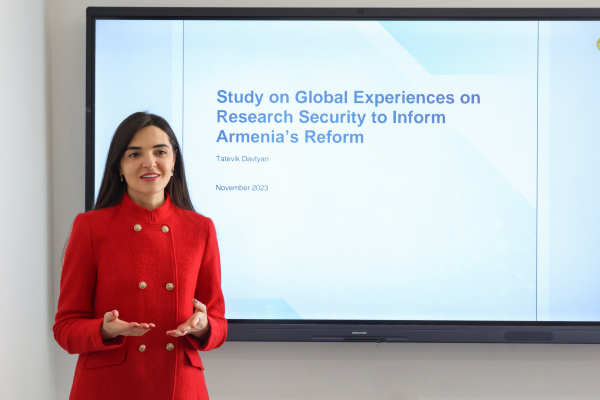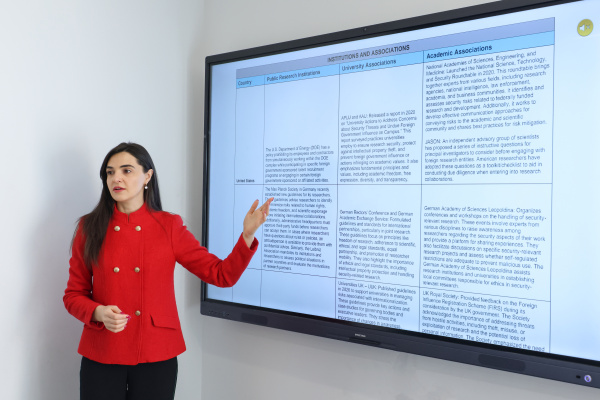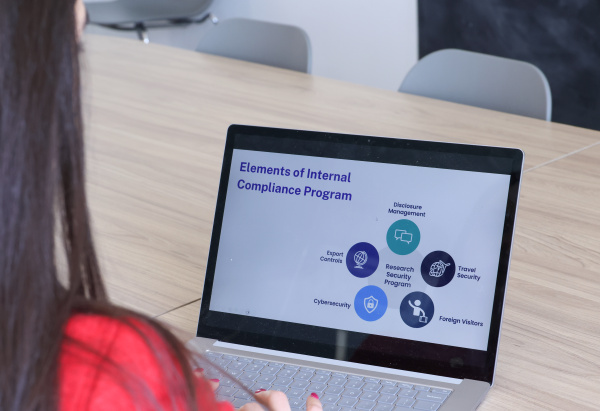April 26, 2024 | 10:13
Science
Education
Research
Research security: challenge of the times
Open and transparent international communication, dissemination of scientific information and data, and exchange of research materials can not only ensure the global development of the scientific mind but also become a new challenge and threat in the case of inappropriate processing, dissemination, and usage of data. These issues took center stage at the "ASCE-2024" international conference, in which Tatevik Davtyan, Lecturer at the YSU Faculty of Law, Candidate of Legal Sciences, and Associate Professor, also participated.

The term "research security" is a relatively new phenomenon, gaining prominence within the professional community since 2021. The aim of the "ASCE-2024" international conference, which is being organized for the 8th time, is to unite the scientific community interested in the topic. Every year, policymakers of the above-mentioned field, institutions implementing the program, government representatives, as well as the academic community, and representatives of universities gather under one roof from leading countries such as the USA, Canada, UK, Singapore, Australia, Germany, Netherlands, other EU countries.

This year, around 500 representatives from 21 countries worldwide participated in the conference, with an additional 200 joining as online participants. YSU also participated in the conference representing Armenia.
Tatevik Davtyan, Lecturer in the Chair of Civil Law at the YSU Faculty of Law, Candidate of Legal Sciences, and Associate Professor, presented a report at the conference.
"My research is on the global challenges in research security, the response strategies adopted by leading countries, the current situation in the Republic of Armenia, proposing policy development directions for the field," she said.
"Open access internet sources are not always trustworthy", although we all hear such warnings all the time, many people still fall victim to internet fraud. Tatevik Davtyan said that this is how all the information about the agricultural UAVs of a young graduate student was leaked to cybercriminals when the scientist connected to open Wi-Fi using his work computer. As a result, the scientist and the country representing him were left out of the economic competition.
Hence, the challenges threatening the modern scientific world range from unknowing information leakage to the sale of confidential information for financial gain, intellectual property theft, and illegal appropriation of scientific findings by foreign intervention.

"It's important to note that fraudsters typically use obtained confidential or publicly accessible information to influence people's decisions, violate human rights, discredit democracy, academic freedom, transparency, research integrity, reliability, and trustworthiness. The common targets include scientists, researchers, students, and the administrative staff of scientific institutions," explained T. Davtyan.
It should be noted that the "ASCE" conference is coordinated by the Texas A&M University System Research Security Office in cooperation with the US federal government agencies.
"This conference is of great importance for fostering global cooperation and addressing the challenges in research security; it serves as an international platform to raise the level of awareness and provide solutions to existing problems," noted Tatevik Davtyan.

At the conference, the challenges faced by the academic community were discussed, ranging from analyzing trends in science and technology cooperation to addressing manifestations of foreign influence in academic environments, risks, and management. American, Canadian, and European approaches to research security were also discussed, providing valuable insights from Germany, the UK, and the Netherlands on balancing open science, threats, and resilience.
The consideration of research security issues holds significance for all countries as academic freedom and international cooperation are the cornerstones of scientific progress, and scientific discoveries are achieved within an interconnected global ecosystem, jointly leveraging the intellectual potential, talent, and financial resources of the whole world. Thus, ensuring a secure scientific environment requires the involvement of all circles.

Tatevik Davtyan pointed out that the legislation, strategy, and policy regulating the field of science in Armenia do lack specific measures, regulations, or guidelines focused on ensuring research security. However, the law "On Higher Education and Science" defines the concept of academic integrity, requiring universities to establish integrity regulations and create mechanisms for their operation.
She emphasized that this is a positive step. However, while academic integrity and research security have much in common and complement each other, they are not identical concepts.
Tatevik Davtyan, through her research, proposed conducting awareness campaigns with scientists and relevant university departments' management (ethics, scientific policy, etc.), with the goal of defining the problem and developing an appropriate policy to regulate the field.

